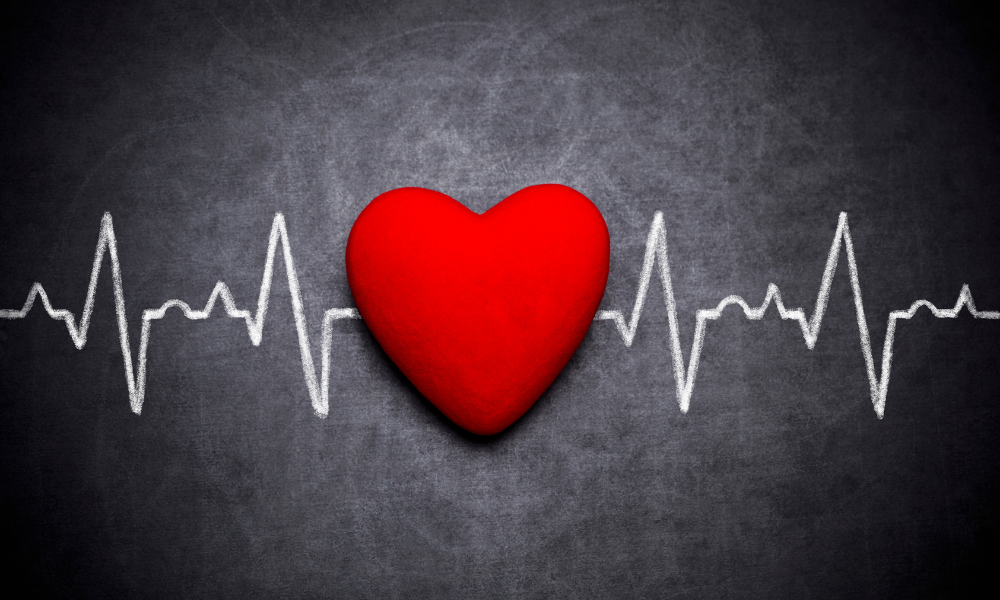Why Your Heart Rate Increase During Exercise

When we engage in physical activity, it's not just our muscles that get to work – our heart also plays a crucial role.
Have you ever wondered why your heart rate increases during exercise?
Let's dive into the fascinating mechanisms behind this phenomenon and understand the intricate relationship between your heart and exercise.
The Heart: Your Body's Engine
What is Heart Rate?
At its core, heart rate refers to the number of times your heart beats per minute.
It's an essential metric that indicates how effectively your heart is pumping blood to various parts of your body.
The Role of the Heart
The heart is a powerful muscle responsible for circulating oxygen-rich blood to every cell in your body.
During exercise, your muscles require more oxygen to function optimally.
This demand triggers a series of physiological responses that lead to an increase in heart rate.
The Physiology of Heart Rate Increase
Oxygen Delivery
When you start exercising, your muscles require more energy. To produce this energy, they need oxygen.
As you move, your body senses the increased demand for oxygen, prompting your heart to pump blood more rapidly.
Carbon Dioxide Removal
As muscles contract and generate energy, carbon dioxide is produced as a byproduct.
Accumulation of carbon dioxide can hinder muscle function. Your heart responds by pumping oxygen-rich blood faster to remove this excess carbon dioxide and deliver fresh oxygen.
The Role of Hormones
Adrenaline Rush
Engaging in physical activity triggers the release of adrenaline – the "fight or flight" hormone.
Adrenaline prepares your body for action by increasing your heart rate. This prepares your body to meet the physical demands of exercise.
The Importance of Heart Rate Increase
Efficient Oxygen Transport
The increase in heart rate ensures that your muscles receive a continuous supply of oxygen-rich blood.
This oxygen is vital for the process of aerobic respiration, which provides sustained energy during longer periods of exercise.
Calorie Burn
A higher heart rate indicates that your body is working harder.
This increased effort translates to burning more calories, making exercise an effective tool for weight management.
Cardiovascular Health
Regular exercise not only strengthens your muscles but also your heart.
By challenging your heart to work more efficiently during workouts, you contribute to improved cardiovascular health and reduced risk of heart diseases.
Factors Influencing Heart Rate
Exercise Intensity
The intensity of your workout plays a significant role in determining the extent of heart rate increase.
Higher intensity activities demand a faster heart rate to meet the heightened energy needs.
Fitness Level
Individuals with higher fitness levels tend to have lower resting heart rates and experience a slower increase in heart rate during exercise.
This showcases the adaptability of the heart to training over time.
Conclusion
Understanding why your heart rate increases during exercise provides valuable insights into the remarkable ways your body adapts to physical demands.
The intricate interplay between oxygen delivery, waste removal, hormones, and cardiovascular health showcases the complexity of the human body's responses to exercise.
FAQs
Does an increased heart rate during exercise always indicate a problem?
Not necessarily. A moderate increase in heart rate is a normal response to exercise. However, if you experience dizziness, chest pain, or severe shortness of breath, it's advisable to consult a healthcare professional.
Is a higher heart rate always better for calorie burning?
While a higher heart rate does burn more calories, the optimal heart rate for calorie burn depends on factors like age, fitness level, and exercise intensity.
Can regular exercise lower resting heart rate?
Yes, engaging in consistent physical activity can lead to a lower resting heart rate as your heart becomes more efficient at pumping blood.
What role do genetics play in heart rate increase during exercise?
Genetics can influence your baseline heart rate and how quickly it increases during exercise. However, lifestyle factors like activity level still have a significant impact.
Are there exercises that don't cause a significant heart rate increase?
Yes, low-intensity exercises like gentle yoga or stretching may not cause a substantial increase in heart rate, but they still offer benefits for flexibility and relaxation.
